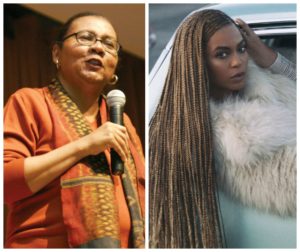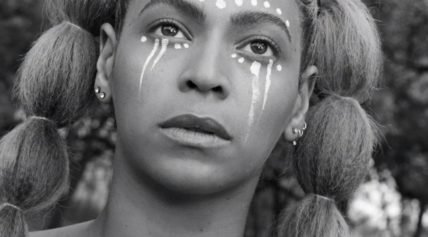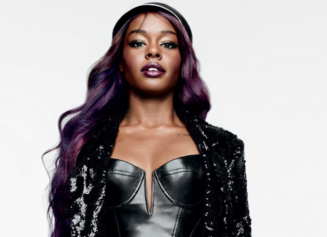
Wikipedia Commons/Parkwood Entertainment
Feminist bell hooks wrote a response to Beyoncé’s “Lemonade” visual album, and it echoes what rapper Azealia Banks said about the short film.
In the essay published on hooks’ website called “Moving Beyond Pain,” hooks claims the videos were not specifically made to empower Black women. She believes anyone who thinks otherwise is “missing the point. According to hooks, regardless of the visual’s strong imagery of Blackness, the goal is always to generate income.
“Beyoncé’s audience is the world and that world of business and money-making has no color,” she writes.
The author takes a cue from Banks by initially praising the singer for showing a variety of body types, calling it “a visual extravaganza — a display of black female bodies that transgresses all boundaries.” She adds, “Its purpose is to seduce, celebrate, and delight — to challenge the ongoing present day devaluation and dehumanization of the black female body.”
But she says these images ultimately devolve into caricatures of gender norms.
“Even though Beyoncé and her creative collaborators daringly offer multidimensional images of black female life, much of the album stays within a conventional stereotypical framework, where the black woman is always a victim.”
Last month Banks made a similar statement about the visual album when she went from praising to criticizing “Lemonade.”
https://twitter.com/AZEALIABANKS/status/724771276636704768?ref_src=twsrc%5Etfw
https://twitter.com/AZEALIABANKS/status/724772225535070209
https://twitter.com/AZEALIABANKS/status/724773769596833792
hooks goes on to tackle Beyoncé’s emotional evolution in the visual album and condemns her “celebration of rage.” She asserts that regardless of what others believe about gender equality, “women do not and will not seize power and create self-love and self-esteem through violent acts.”
The essay wraps with hooks saying the singer panders to a patriarchal society. She believes instead of using violence, Black men “must do the work of inner and outer transformation if emotional violence against black females is to end.”
She wraps her piece by saying, “It is only as Black women and all women resist patriarchal romanticization of domination in relationships can a healthy self-love emerge that allows every black female, and all females, to refuse to be a victim.”
This isn’t the first time the activist has delivered a sharp critique of the musical icon. Atlanta Black Star reported that hooks called Bey a terrorist for posing in revealing clothes for her Time magazine cover in 2014.


